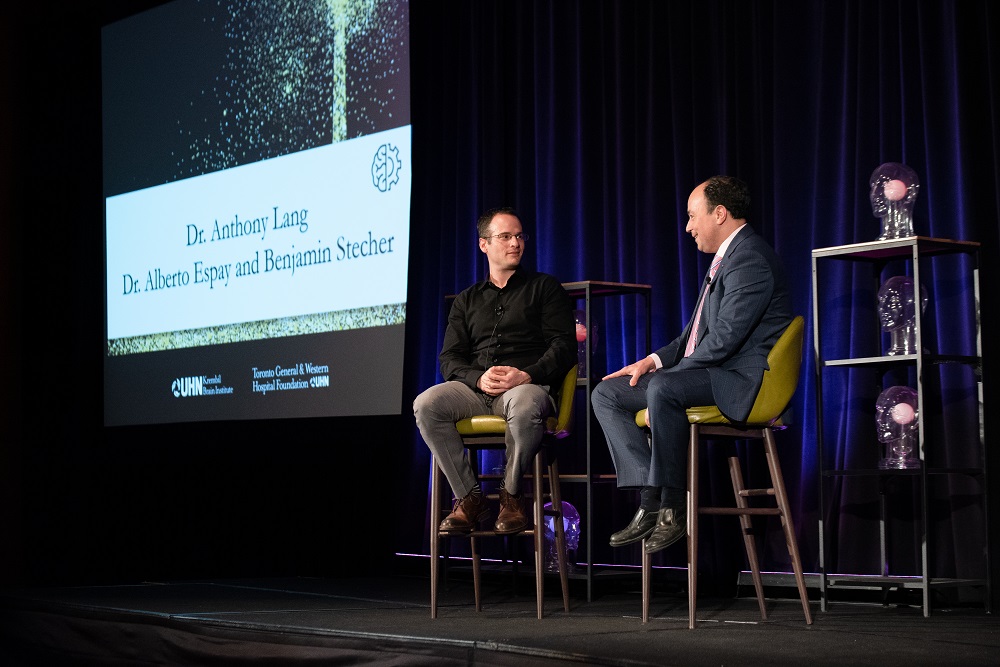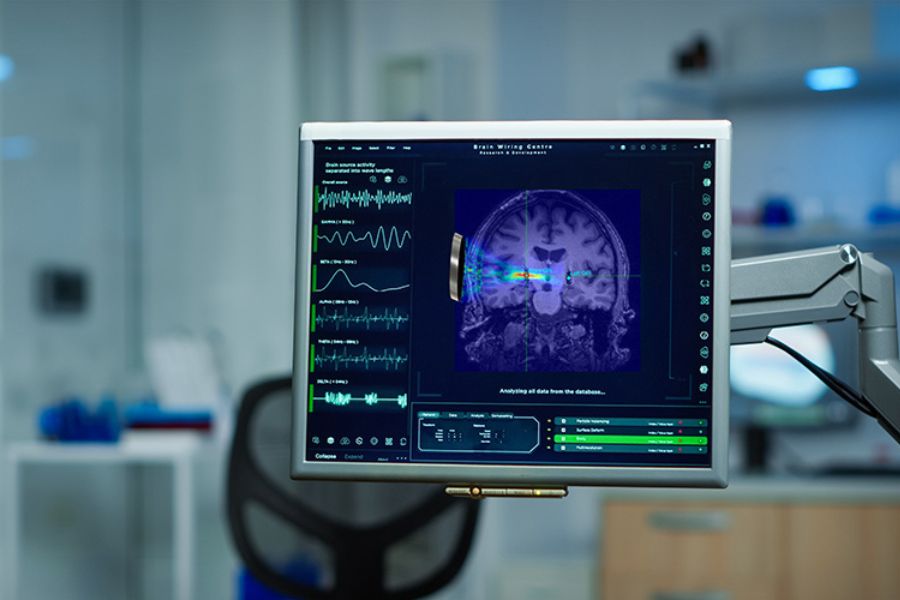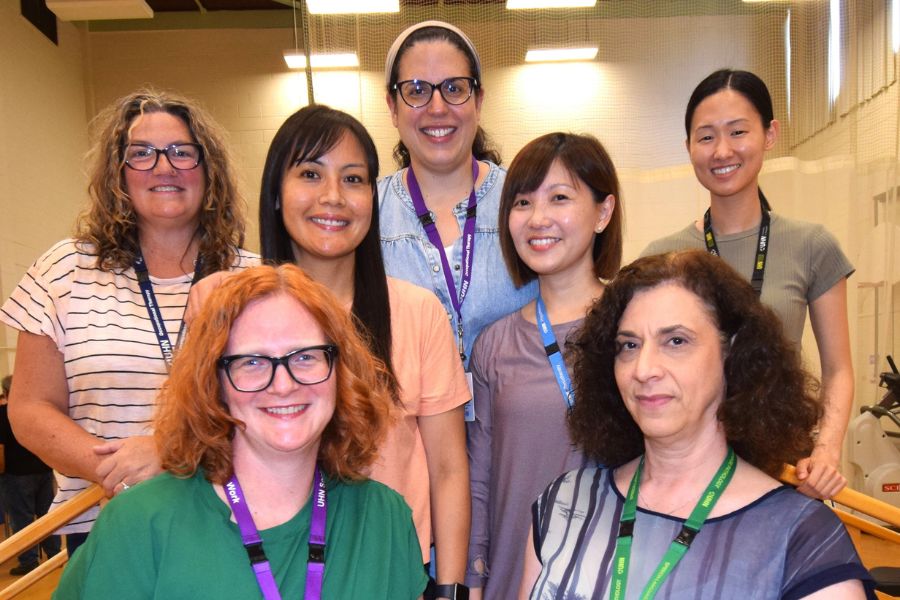Highlights of the event include a special keynote presentation given by Dr. Alberto Espay, a prominent neurologist at the University of Cincinnati, where he shed light on the complicated, challenging nature of this disease. The evening wrapped up with an introspective Q&A session with Dr. Espay, led by Benjamin Stecher, who was diagnosed with Parkinson’s disease at age 29 and now is actively involved in Parkinson’s research advocacy in Canada.

Benjamin Stecher (left) and Dr. Alberto Espay (right) engage in an insightful conversation about the challenges of living with, and researching, Parkinson’s disease.
Changing the Course launched the beginning of global symposium in Toronto, ‘Krembil Knowledge Gaps in Parkinson’s Disease: Revision vs. Reconstruction’, sponsored by the Krembil Brain Institute, part of Toronto Western Hospital. The three-day summit brings together experts from around the world in Parkinson’s disease research. The brightest minds in the field will brainstorm and debate how to best capitalize on current knowledge and discuss new strategies to speed up discovery, in the hopes of finding disease-modifying therapeutic options for patients.
Overall, the goal is to turn current research approaches upside-down and critically examine what can be done to make significant progress in treating, and one day curing, this debilitating disease. To do this, researchers will need to decide on a ‘Revision vs. Reconstruction’ strategy.
“Knowing the clinical complexities about Parkinson’s disease, knowing that we likely aren’t dealing with a single disorder, can we simply make a revision in our current course of research and treatment for patients with Parkinson’s disease or do we need to completely reconstruct our approach in order to move forward?” asks Dr. Anthony Lang, Director of the Edmond J. Safra Program in Parkinson’s Disease and Morton and Gloria Movement Disorders Clinic at Toronto Western Hospital. “This is the big challenge now.”
The unique format of the summit allows for less programming and more discussion. Each speaker represents a different approach to Parkinson’s disease research, in order to facilitate as broad a perspective as possible.
With the number of people diagnosed with Parkinson’s expected to rise by more than 50 per cent by 2030, aligning efforts among researchers is key. “The answers to our most important questions depend on whether our views on Parkinson’s are ‘revised’ or ‘reconstructed’,” says Dr. Espay. “So, the timing of this discussion is critical.”


